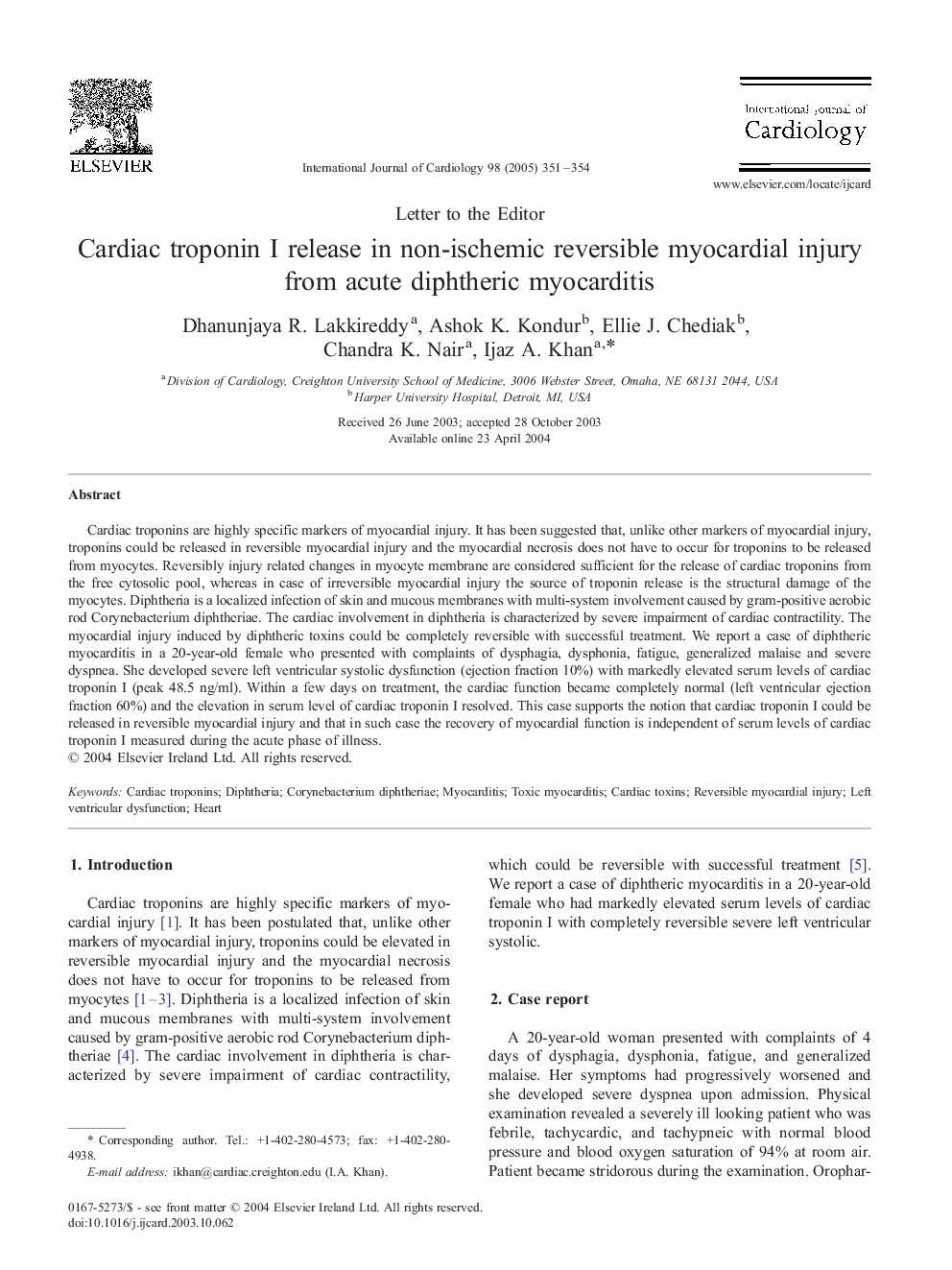| Article ID | Journal | Published Year | Pages | File Type |
|---|---|---|---|---|
| 9957141 | International Journal of Cardiology | 2005 | 4 Pages |
Abstract
Cardiac troponins are highly specific markers of myocardial injury. It has been suggested that, unlike other markers of myocardial injury, troponins could be released in reversible myocardial injury and the myocardial necrosis does not have to occur for troponins to be released from myocytes. Reversibly injury related changes in myocyte membrane are considered sufficient for the release of cardiac troponins from the free cytosolic pool, whereas in case of irreversible myocardial injury the source of troponin release is the structural damage of the myocytes. Diphtheria is a localized infection of skin and mucous membranes with multi-system involvement caused by gram-positive aerobic rod Corynebacterium diphtheriae. The cardiac involvement in diphtheria is characterized by severe impairment of cardiac contractility. The myocardial injury induced by diphtheric toxins could be completely reversible with successful treatment. We report a case of diphtheric myocarditis in a 20-year-old female who presented with complaints of dysphagia, dysphonia, fatigue, generalized malaise and severe dyspnea. She developed severe left ventricular systolic dysfunction (ejection fraction 10%) with markedly elevated serum levels of cardiac troponin I (peak 48.5 ng/ml). Within a few days on treatment, the cardiac function became completely normal (left ventricular ejection fraction 60%) and the elevation in serum level of cardiac troponin I resolved. This case supports the notion that cardiac troponin I could be released in reversible myocardial injury and that in such case the recovery of myocardial function is independent of serum levels of cardiac troponin I measured during the acute phase of illness.
Keywords
Related Topics
Health Sciences
Medicine and Dentistry
Cardiology and Cardiovascular Medicine
Authors
Dhanunjaya R. Lakkireddy, Ashok K. Kondur, Ellie J. Chediak, Chandra K. Nair, Ijaz A. Khan,
